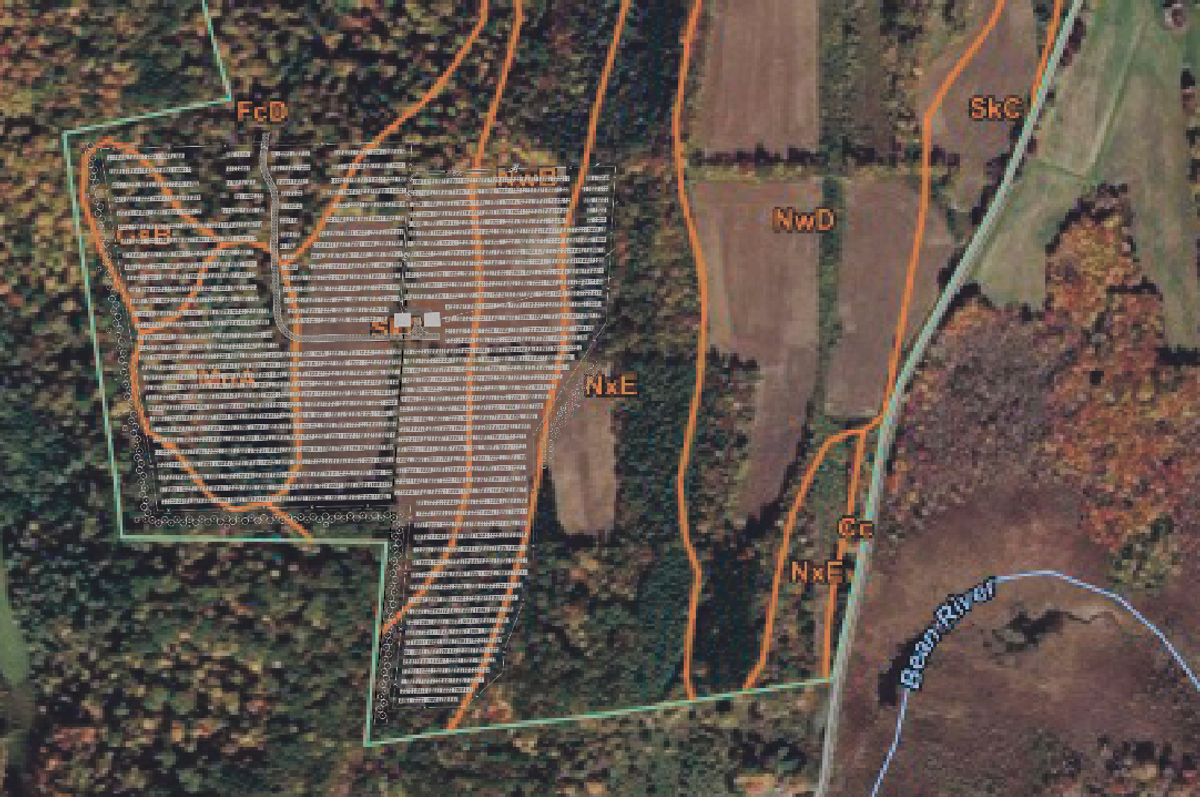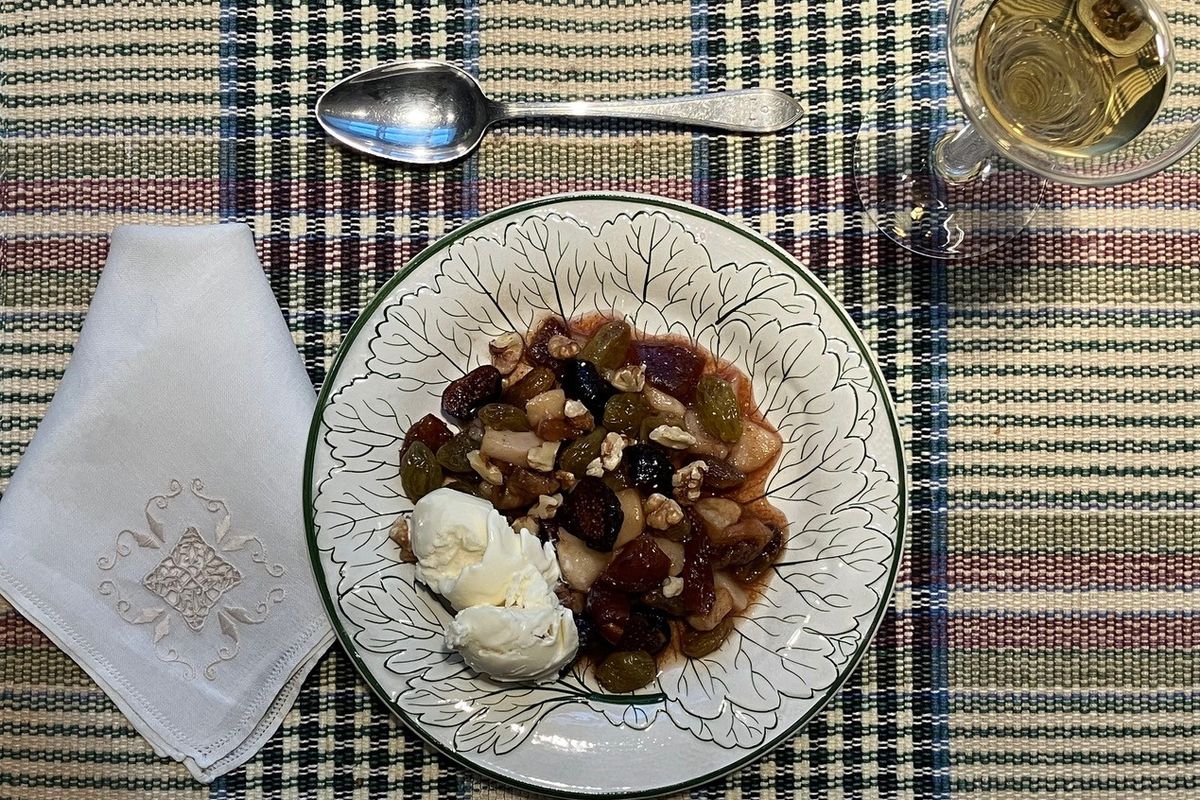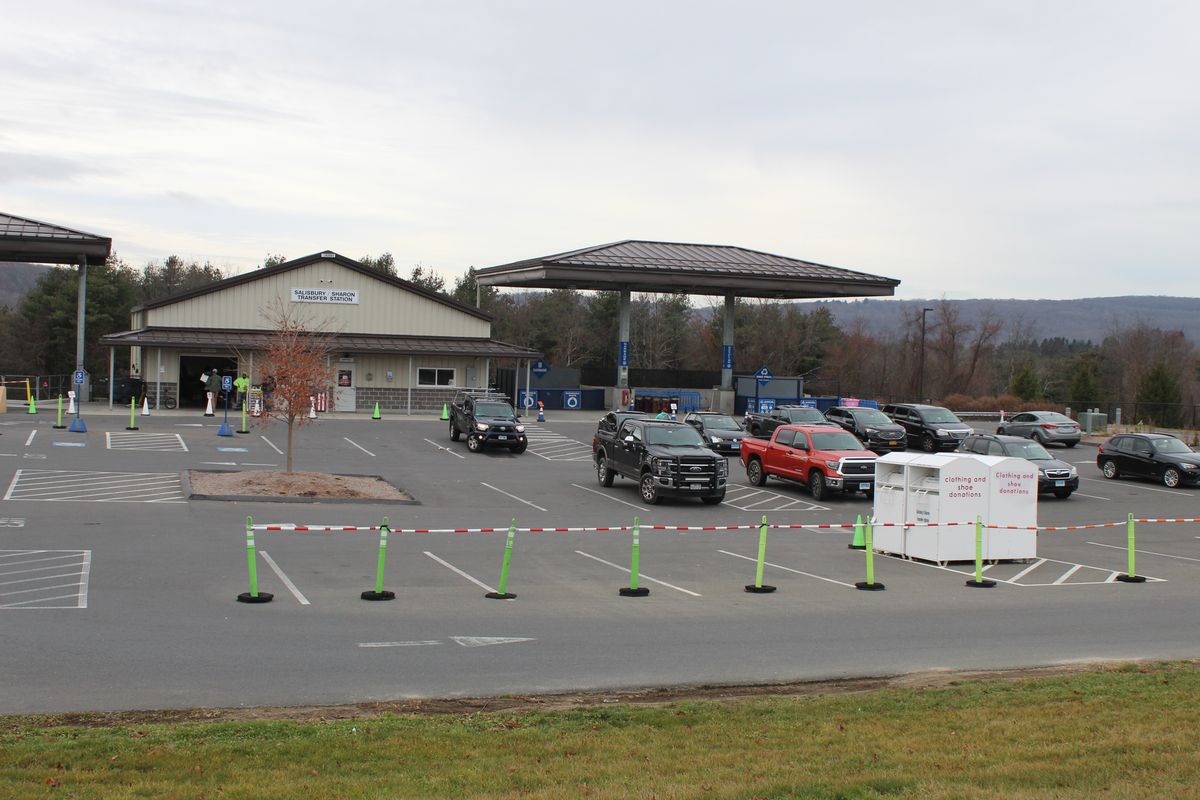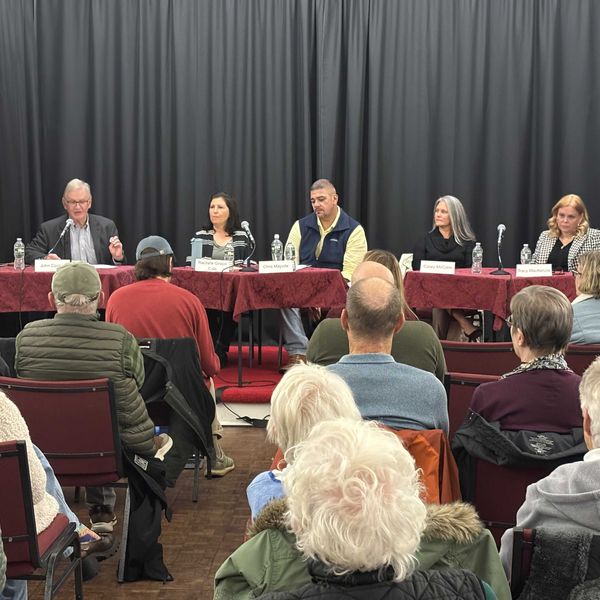Latest News
The Salisbury-Sharon transfer station.
Patrick L. Sullivan
The application estimates a UBP (unit-based pricing) model at the Salisbury/Sharon Transfer Station will lower waste yields by 25-40% in the two towns
SALISBURY/SHARON — The governor’s office announced on Oct. 29 that the Salisbury/Sharon Transfer Station will receive a state grant to implement a unit-based pricing system —known as UBP or “pay as you throw” — and expand its composting operations.
The Connecticut Department of Energy and Environmental Protection (DEEP) awarded the transfer station $266,692 through its Sustainable Materials Management grant program. The funds will support a gradual, three-phase transition to a pay-per-bag model to replace the current $150 flat fee paid by households. Both the Salisbury and Sharon selectboards endorsed the application when it was submitted in June.
Under the new system, residents would pay based on the amount of trash they generate rather than a single flat rate. Smaller households, such as retirees or couples, would pay less, while larger families that produce more garbage would pay more.
Per the application, “the goal of the three-phase process is to gain as much support as possible for the program.”
On Oct. 30, Brian Bartram, manager of the transfer station, said efforts to switch to a UBP system began in 2000 when the proposition was met with community backlash. Another attempt to look into UBP was initiated in the early 2010s, but it didn’t go anywhere, said Bartram.
UBP is controversial because while it brings costs down for some, it will not benefit the larger households who have grown used to the flat rate. There is evidence, though, especially from nearby Massachusetts, that the system lowers overall residential and commercial waste production.
The application estimates a UBP model at the Salisbury/Sharon Transfer Station will lower waste yields by 25-40% in the two towns, as it has in other Connecticut towns like Woodbury and Guilford/Madison.
Part of the waste reduction comes from diverting food scraps out of the trash. The savings to the town with the program will help further develop the transfer station’s growing composting initiative. Cornwall was also awarded an SMM grant on Oct. 29 in the sum of $15,000 to build its own composting program.
Bartram said the purpose of the phased strategy is to allow for “parachutes” or “fire extinguishers” in case the system proves to be inappropriate for the towns or widely unpopular. In the immediate term, the selectmen have the right to decline the grant money, even though they signed on to the application in the early summer.
Bartram said if the two selectboards choose to accept, the first step will be to compile an advisory committee for the project with members on both sides of the UBP issue.
Once that team is assembled, the first phase will be “groundwork” and will begin with deliberating implementation specifics about pricing, bag distribution andpublic outreach efforts.
As of Monday, both first selectmen expressed enthusiasm at the transfer station’s success with its application and for beginning the initial process.
Following the groundwork stage is the “launch”phase in which the Committee will initiate widespread community engagement as the program kicks off for a mandatory 1-year run, which will have to be approved by both selectboards. The final phase outlined in the application is the “monitoring” phase where feedback and program results are reviewed and the system is streamlined for long term success.
Bartram said he was confident in the plan, but that he understands the difficulty in bringing an unfamiliar program to the transfer station. “I think it’s a good idea but there are so many nuances,” he said. He stated it will be the job of the committee to discern the best way to move forward with a program that could help the state mitigate its waste crisis.
Since the closure of the Materials Innovation and Recycling facility in Hartford in 2022, Connecticut has shipped more than 40% of its municipal and commercial waste to landfills across state borders, which is expensive to the state, towns and ultimately residents.
Keep ReadingShow less
The federal government shutdown has delayed SNAP benefits payouts nationwide, prompting New York State and Dutchess County governments to distribute millions of dollars in aid to food banks and pantries.
Dutchess County Executive Sue Serino announced on Friday, Oct. 31, that $1.5 million in reserve emergency funds would be distributed to food pantries across the county. The county plans to distribute $150,000 per week for 10 weeks to pantries across Dutchess.
The Supplemental Nutritional Assistance Program — commonly referred to as SNAP or food stamps — has never faced a delay in benefit payouts in its modern history.
Volunteers at the Food of Life Pantry — run by Amenia’s St. Thomas Episcopal Church and Charlie Paley of Sharon — said they expect the freeze in SNAP disbursements to strain a community that is already under stress.
Jim Wright, warden of the St. Thomas Episcopal Church, said keeping the food pantry stocked has become more difficult as free and reduced-price food from the Albany-based Food Bank of New York is increasingly scarce. He added that ongoing cuts to funding and staffing at the U.S. Department of Agriculture have only exacerbated the problem.
That scarcity has pushed the pantry to lean harder on other organizations such as the Tenmile Farm Foundation in Dover Plains, which Wright said has delivered 24,758 pounds of fruits and vegetables to the pantry this growing season.
“What’s been happening since late January is that there’s been less and less food that’s either free or lower price,” Wright said. “So many of our partners have stepped up.”
The Tenmile Farm Foundation is part of a network of like-minded organizations in the Tri-corner region of New York, Connecticut and Massachusetts that collaborate to promote access to nutritious, locally-produced food at an accessible price or for free.
The North East Community Center’s Food Programs Director Jordan Schmidt heads up the network — officially known as the Tri Corner Nutrition Security Coalition — as part of her role in charge of the community center’s food pantry and outreach programs.
Among the coalition’s partners is Tri-Corner F.E.E.D., which offers an alternative to traditional pantries. Linda and James Quella of Sharon, Connecticut, formed the organization and opened a market in Millerton that sells locally-produced groceries at subsidized prices.
Blake Myers, manager of the Tri-Corner F.E.E.D. Market on South Center Street in Millerton, collaborates with the coalition. She said the coalition has been closely monitoring local residents’ access to food, allowing its member farms, pantries and nonprofits to quickly redirect supplies when needs arise.
Tri-Corner F.E.E.D. operates a market with tiered pricing. Customers can sign up to buy groceries either at full price, at a 30% discount or at a 60% discount depending on their need.
Myers echoed Food of Life volunteers’ concerns about the community’s increasing dependence on local food pantries.
She said food pantries are supposed to be a resource in emergencies. “What’s happened is that they are now a regular resource that people need in order to feed their families,” Myers said. “This case of the SNAP benefits being cut is an emergency emergency, because there’s already so many families that are barely scraping by.”
The Rev. AJ Stack of St. Thomas Episcopal Church in Amenia said the most effective way to support the Food of Life pantry is through cash donations. “We can purchase things at much lower prices elsewhere,” Stack explained, adding that every dollar goes further when the pantry buys in bulk from its suppliers.
Myers offered a similar perspective when it comes to supporting Tri-Corner F.E.E.D. She told The News that customers with the means can best assist the nonprofit by purchasing items at full price — providing revenue that helps fund the market’s mission to offer affordable food to those in need.
“All of our shoppers here are by word of mouth,” Myers said. “Which is really important to me, because I wanted the experience to be something that people wanted to return to and feel comfortable.”
Keep ReadingShow less
The Wassaic Community Quilting Workshop welcomes all ages and skill levels. Expert quilters will be on hand to help guide the work.
Photo Courtesy Joshua Simpson Photography
WASSAIC — The third annual Wassaic Community Quilting Workshop with local artist Natalie Baxter will take place on Saturday, Nov. 15, from 1 to 5 p.m. at the Wassaic Fire Station. The free, drop-in event — which is held in partnership with the Wassaic Project — is open to the public and no quilting experience is required.
Participants can expect a hands-on workshop led by quilting pros where they will learn to design, cut and piece together a quilt square using sewing machines under the guidance of experienced quilters. The completed squares will be sewn into a large community quilt, to be displayed at the Wassaic Project’s Maxon Mills before being auctioned off to support the Wassaic Fire Company.
Baxter, known for her textile-based artwork, created this workshop to bring people together in an open, inviting environment with creativity at its center. “Shared creative experiences have been shown to strengthen mental health and community bonds,” she said. “Quilting felt like the perfect medium for that kind of connection.”
The idea for the workshop came amid the COVID-19 pandemic when Baxter saw growing social isolation and political division. “It felt like people were increasingly speaking into echo chambers online rather than connecting face-to-face,” she said. “I noticed how few opportunities there were for people with different backgrounds and viewpoints to gather in the same space.”
Baxter said her choice to use the firehouse as a venue was intentional. “I wanted to get out of these unapproachable spaces like museums and galleries and actually bring people together in a shared space — like a firehouse.”
When Baxter and her family moved from New York City to Wassaic several years ago, it felt like a “significant shift.” She found herself seeking connection and belonging in what she calls a “purple county,” one with political diversity — something that informs much of her work.
Having grown up in Kentucky in a family that supported open-carry gun laws, Baxter’s perspective evolved after years spent in New York City. Today, she takes pride in her ability to bridge opposing perspectives — an ability that threads its way through her art. “My work often explores the space between these divides, and I wanted to take that exploration beyond the gallery and into real, shared action,” she said. “What better way to bring people together than through the act of creating?”
Working primarily in fabric, Baxter’s practice spans soft sculpture, quilted wall hangings and community-based projects. Her work has been exhibited in galleries, museums, universities and fairs in the United States, Hong Kong and Sweden.
“I create approachable work that playfully confronts the complexities of social and political division,” Baxter said, describing her series of stuffed caricatures of assault weapons made from vibrant fabrics. “Using humor and precision, I reflect the absurdity and intensity of our political climate.”
Quilting, however, is where it all began. Baxter learned to sew as a child in Kentucky, following a long line of family quilters. “I never imagined I’d have a career using the same art form I learned from my grandmother,” she said, adding that she is eager to share her experience and talents with the community.
“Shared creative experiences have been shown to strengthen mental health and community bonds, and quilting felt like the perfect medium for that kind of connection,” she said.
This event invites many hands and perspectives to collaborate on a shared vision, all in support of the Wassaic Fire Company.
Baxter received grant funding for the workshop, allowing all quilting materials to be provided to participants free of charge. This project is made possible with funds from the New York State Legislature and administered by Arts Mid-Hudson. This year will feature an optional potluck to encourage additional community building and conversation.
Keep ReadingShow less
MILLERTON — Halloween may be in the rear view mirror, but don’t toss those pumpkins just yet.
In partnership with McEnroe Organic Farm, the North East Climate Smart task force will host its annual Pumpkin Smash at Eddie Collins Park on Saturday, Nov. 15, from 2 to 5 p.m. The family-friendly event aims to help community members dispose of their pumpkins in a fun, eco-friendly way.
Attendees can enjoy cider and donuts, a beer tent hosted by Willa, and kids’ sack races with prizes organized by the 175th Committee, whose members will be on hand to answer questions about the village’s milestone birthday bash planned for July.
The main attraction will be a life-sized slingshot — engineered by task force member Andrew Stayman — that will launch pumpkins of all sizes into the air for a satisfying smash.
“Our number one priority is to have fun,” said Climate Smart task force coordinator Kathy Chow. “We will also introduce people to Climate Smart concepts, especially composting.”
Chow says the annual Pumpkin Smash is intentionally held two weeks after Halloween so people’s pumpkins are “nice and mooshy.”
The smashed pumpkins will be hauled away by McEnroe Organic Farm for use in their composting operation, which was established in 1987. “We compost material from our own farm, our local food waste drop-off site and sources from New York City and the surrounding Northeast region,” said Olivia Skeen, McEnroe’s development and communications manager. “Each year we process around 8,000 cubic yards of food waste — roughly the size of 220 school buses.”
While the event is meant to offer a bit of post-Halloween fun, Chow said the need for composting is serious. Nearly a quarter of everything sent to landfills is food waste, making it the largest contributor to municipal solid waste. As it decomposes, it emits methane, a greenhouse gas that Chow says is roughly 30 times more potent than carbon dioxide.
Farms like McEnroe’s help divert waste, sequester carbon, improve soil health, reduce erosion and manage stormwater. “The nutrient-rich compost we produce supports our farm’s organic crops, fruits, vegetables, herbs and our free-range beef cattle,” said Skeen. “Our commitment to climate resilience is at the core of everything we do, from growing the food we eat to educating the public on sustainable practices that help protect the environment for future generations.”
Composting won’t be the only Climate Smart topic discussed at the event. Chow said the task force will also be on-hand to educate village residents about their recently installed water meters. “We will share all types of clever tips and tricks about understanding water consumption,” she said. “And how people can save water and money.”
Drop off your food scraps at McEnroe’s and help reduce landfill waste
McEnroe’s household food waste drop-off site is located in the parking lot of its market, 5409 Route 22, Millerton, where three bins are available for anyone in the community who wants to participate.
“It’s an easy and convenient way to ensure your food scraps don’t end up in a landfill,” said Skeen. She added that no plastic or compostable bags should be used, as they don’t break down in the composting process.
Skeen also recommended freezing food waste until drop-off. “This helps reduce any odors and makes it even easier to drop off your waste when it’s convenient for you,” Skeen said. “We’re here to make it as easy as possible to reduce waste and help the community embrace a more sustainable way of living.”
Keep ReadingShow less
loading












